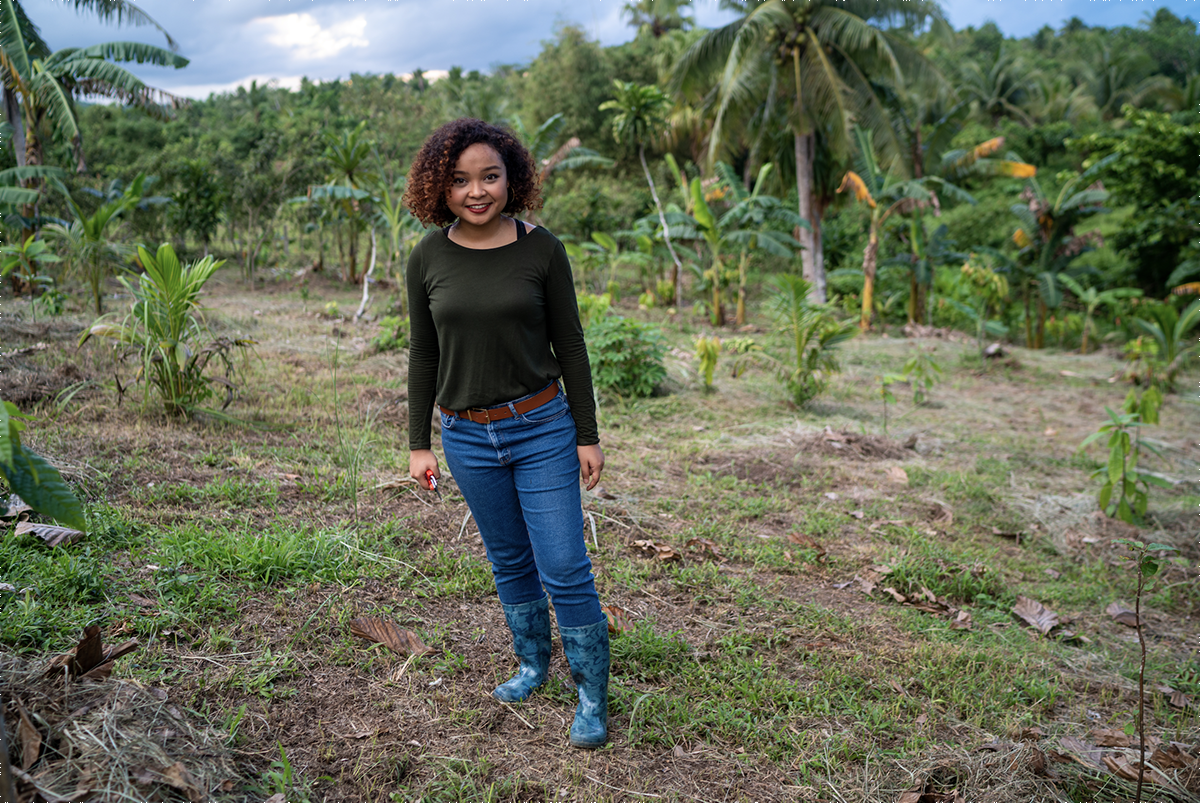This is a continuation of our "IANR is Global" series, which highlights the many ways internationalization is woven through the Institute of Agriculture and Natural Resources: through research collaboration, government and private industry partnerships, extension work, student educational experiences and the IANR community from around the world.
This edition is specifically focused on the many global voices we have on campus who will be sharing their expertise through seminars during 2020 and beyond. On Tuesday, August 20 at 10:00 a.m. CDT, award-winning chef, farmer, entrepreneur and global youth leader Louise Mabulo will give a seminar as part of the Daugherty Water for Food Global Institute’s “Women Leaders in Water for Food: Empowering Youth Entrepreneurs” series. We appreciate the expertise we are fortunate to have from all over the world, as shown by their many and varied contributions to the work of the university and our continued mission to create a globally engaged institution. To this end, we want to help our campus community get to know each other (and the world) more, starting with these experts.
Where is your hometown? Where did you receive your education?
My hometown is in a little place called San Fernando, Camarines Sur, which is a rural area sprawling with lush, green, agricultural land. For most of my childhood I was homeschooled, and for university, I took an Open University Program at University of the Philippines
Tell us a little about your path to where you are now.
I am a chef, farmer, and entrepreneur. I currently run my social venture called The Cacao Project which is rethinking our existing food systems, and harnessing the power of our forests to create resilient, climate smart livelihoods to better position farmers for sustainable success.
We work with local farmers and use cacao, a high value crop, to create economic forests throughout our town, and provide farmers with training, and resources to build these livelihoods. Not just that, we’re on a mission to break down the stigmas associated with agriculture and help to prosper integrated landscape approaches and regenerative farming in areas like ours.
I came to be in this industry from a culinary career that was jumpstarted by the reality TV Show, Junior MasterChef. Ever since, I was always a staunch advocate of farm-to-table cuisine and growing my own ingredients. Eventually when my town was hit by Typhoon Nock-Ten, I knew that we had to rebuild and restart our livelihoods, which is when I came up with The Cacao Project.
What is something people don’t know (or that you wish they knew) about where you’re from?
I wish people knew that there is opportunity and potential, even if you’re living in the middle of what most would consider, virtually nowhere. And it’s in developing areas like these, the places that rarely ever get noticed on the map, that you find the most generous, kind-hearted people, who work together to make a meaningful difference if you give them the chance.
Are you engaged in any international collaborations?
At the moment, I’m one of United Nations Environment Programme’s Young Champions of the Earth, and they have truly supported my venture and helped us through mentorship and communicating our message to the world. On the other hand, I work on a lot of international collaborations through food, online trainings and mentorship programmes.
Why is it important for institutions like the University of Nebraska to hear from people with experience from different parts of the world?
It’s important to be inclusive to all voices and various perspectives if we’re to tackle global and international issues. There is so much to learn from everyone’s lived experiences— everyone has a story to tell, whether it’s a CEO of some famous company or a farmer from a developing country, everyone has something meaningful to contribute and bring to the table.
More importantly, we can learn from the very people who are most vulnerable to the climate issues, and who, ultimately, are most affected by the high-level decisions made on their behalf.
What is one piece of advice you would share with students?
My piece of advice would be to cultivate a character of grit, perseverance, and empathy. There is always something important to learn from people in different parts of the world, and in places you least expect it. Have an open mind, and be open to new and strange cultures. And don’t expect to be able to save the world or make a global difference overnight… Sometimes it’s in small actions, decisions, and conversations that tangible and meaningful change starts.
We encourage the campus community to tune into Louise’s seminar on Thursday, August 20 at 10:00 a.m. as well as learn more about her social agri-entrepreneurial venture The Cacao Project, being named a Young Champion of the Earth by the UN Environmental Programme in 2019, and more.
---
Are you giving a seminar in 2020 (or the future) and have an international element to your work, studies or background you'd like to see highlighted? Contact Brianne Wolf at bwolf4@unl.edu.
